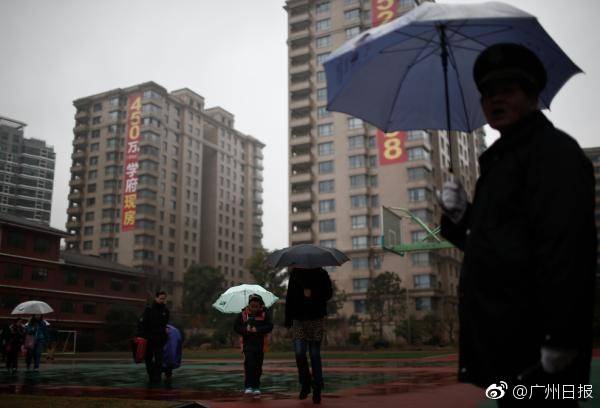


China's economic powerhouse Guangzhou will give tenants and homeowners equal rights to education resources, quashing a former rule.
The regulation is part of a larger plan to increase the number of renters and curb property prices. The city is the first top-tier Chinese city to grant equal rights to renters and home owners.
In many cities across the country, property is more expensive in areas around good schools. The right to attend these schools, however, is limited to the offspring of homeowners, rather than tenants.
"Improving the rental market is an important part of housing reform and improving people's lives. It is part of Guangzhou's long-term residential plan," said an official with the Guangzhou Housing and Urban-Rural Construction Committee.
Under the new regulation, tenants who hold a Guangzhou "hukou" (household registration) or a skilled worker certificate, will be able to enroll their children in elementary and middle schools.
Sun Bushu, deputy director of South China City Research Association, called the regulation "commendable" as it addresses issues in the property market and will help attract more people with skills to the city.
However, the fact that education resources are lacking remains unchanged, and it is not possible to guarantee complete equal rights for everyone, Sun said.
"The main group of people who will benefit from the policy are skilled workers or people whom the city wants to attract, not migrant workers," said Sun.
"Desirable property, such as homes near good schools, are already priced accordingly. When the regulation goes into action, there is a risk that rents will soar," he said.
Song Ding, a real estate market researcher with China Development Institute, said Guangzhou's new policy is a strong signal that policy is moving toward being in favor of the rental market.
Guangzhou has also promised to assign more houses for rent and allow estate agents to renovate old apartments and dilapidated buildings.
Last year, the State Council ordered local governments to develop the rental market. In Shanghai, new land has been allocated for real estate development on the condition that apartment will be for rent, not for sale.
"Nationwide, the basic mechanism is being formed. I believe other top-tier cities like Shenzhen, Shanghai and Beijing will also move forward in this regard," Song said.
China's property market has shown signs of cooling as prices faltered or posted slower growth in major cities amid tough government curbs, according to data from the National Bureau of Statistics (NBS).
However, new home prices in some small cities have registered fast growth.
 Picturesque summer scenery of Tuohulasu Prairie in Xinjiang
Picturesque summer scenery of Tuohulasu Prairie in Xinjiang Colors of summer: Yanhu lake transforms into muti-colored pools
Colors of summer: Yanhu lake transforms into muti-colored pools China’s high-speed railway now offers food at the click of a button
China’s high-speed railway now offers food at the click of a button New uniform coming to PLA
New uniform coming to PLA Gambler or dreamer?
Gambler or dreamer? China is world’s largest renewable energy producer, consumer
China is world’s largest renewable energy producer, consumer Chinese base in Djibouti not military expansion
Chinese base in Djibouti not military expansion Legislation needed to protect China’s dark sky resources
Legislation needed to protect China’s dark sky resources China’s domestic airlines' carrying capacity beats the US
China’s domestic airlines' carrying capacity beats the US Top 10 most sustainable cities in China
Top 10 most sustainable cities in China Top 10 European patent applicants in 2016
Top 10 European patent applicants in 2016 The power of 'She' in China
The power of 'She' in China Seven most beautiful art museums in China
Seven most beautiful art museums in China Falling approval rate tolls bell for Abe’s rule
Falling approval rate tolls bell for Abe’s rule After student’s disappearance, Chinese public point the finger at ‘inefficient’ US police
After student’s disappearance, Chinese public point the finger at ‘inefficient’ US police  Walkers hit by taxi highlight sports facilities shortage
Walkers hit by taxi highlight sports facilities shortage  Govt financial meeting triggers stock overreaction
Govt financial meeting triggers stock overreaction Day|Week